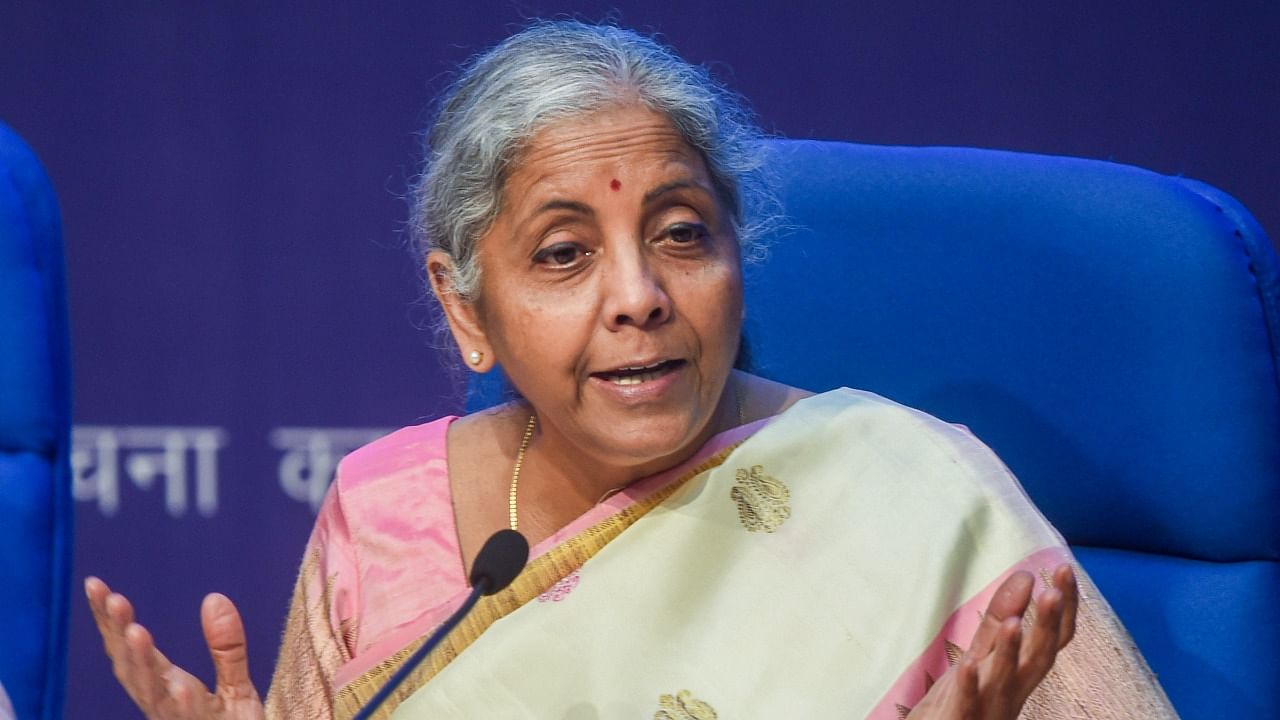
Armed with better-than-expected revenues, Finance Minister Nirmala Sitharaman presented a capital expenditure-led Budget aimed at reviving the Covid-hit economy and creating more jobs over the next 25 years.
Since the private investment was yet to take off in the midst of the pandemic, public investment will pump-prime private investment, Sitharaman pointed out while stepping up capital expenditure by 35 per cent to Rs 7.50 lakh crore in the Budget for the upcoming financial year.
The news, which boosted Indian stock markets on Tuesday, was welcomed by industry watchers and corporate titans alike.
“Finance Minister Nirmala Sitharaman’s Budget for FY23 is well balanced with fiscal prudence and ‘ease of doing business’ as the main themes. I believe the 35% increase in capital expenditure for FY23 is positive and will drive the creation of much-needed infrastructure and jobs. The FM must also be commended for maintaining the fiscal deficit at 6.9% of GDP in FY22. The Budget’s focus on ensuring regulatory ease by promoting digital trust and digital compliance are steps in the right direction," Kiran Mazumdar Shaw, Chairperson, Biocon & Biocon Biologics said on Tuesday.
"The only concern I have is the absence of any fiscal stimulus for the MSME & Services sector that have borne the brunt of the pandemic with large layoffs and job losses reflected in a sharp drop in rural and semi urban consumption. Government will need to address this urgently. Overall, it was a positive Budget without any negative surprises,” she added.
Other industry watchers agreed.
"There is increased focus on employability, e-skilling, employment generation in the MSME sector and recruitment with a view to formalising entrepreneurial opportunities. This augurs well given the rise of unemployment in recent times," said Tapati Ghose, Partner, Deloitte India.
The plan will however leave India with a budget shortfall equivalent to 6.4 per cent of the gross domestic product in 2022-2023, wider than the median 6.1 per cent seen in a Bloomberg survey. The government will end the current financial year with a deficit of 6.9 per cent of GDP against a targeted 6.8 per cent, she said.
Indian 10-year benchmark bond yields surged to their highest in 2 and a half years after Sitharaman said the fiscal deficit for the current financial year would be bigger than expected. The NSE Nifty 50 and S&P BSE Sensex stock indexes jumped nearly 1.5% on a boost in capital expenditure.
Sitharaman still hoped to stay on her fiscal consolidation glide path, which remained at bringing the fiscal deficit below 4.5 per cent by 2025-26.
In her 90-minutes speech, she proposed four focus areas of the Budget -- private investment in the transport sector under the PM Gati Shakti project, inclusive development, optimising productivity and boosting financial investment.
The proposed PM Gati Shakti master plan is based on seven engines of growth, namely roads, railways, airports, ports, mass transport, waterways and logistics infrastructure.
Her announcement on capex drew the immediate attention of former finance secretary Subhash Garg, who said, "raising capital outlay from Rs 5.5 to Rs 7.5 lakh crore is humungous. However, the increase seems only on two accounts- one lakh crore of loans to states and green bonds borrowing for the public sector. No real increase in the Government's own capex?"
Sitharaman largely tried to balance her Budget with an infrastructure-led one for growth even in a year when the BJP-led NDA government gears up for Assembly elections in five crucial states, touted as semi-finals to the General Election of 2024.
Her infra proposals included an expansion of the highway network by 25,000 kms in 2022-23, the creation of 100 new cargo terminals and innovative funding for a new metro rail system.
Housing projects were allotted Rs 48,000 cr for FY23 under the PM Housing scheme, while Rs 60,000 crore was allocated to cover 3.8 crore households for tap water. The minister said 80 lakh affordable houses will be completed under PM Awas Yojna in 2022-23.
Her tax proposals included a 30 per cent levy on income transfer of digital assets. This precedes the introduction of the much-awaited Crypto-currency bill in Parliament.
To help small businesses recover from the pandemic, the Budget proposed to extend the emergency loans scheme to MSMEs till March 2023 and expand its guarantee cover by Rs 50,000 crore to a total cover worth Rs 5 lakh crore.
She said her GST revenues were buoyant despite the pandemic and the gross GST collection for the month of January is over Rs. 1.4 lakh crore – the highest since the inception of GST.
Check out the latest DH videos on Union Budget here:
